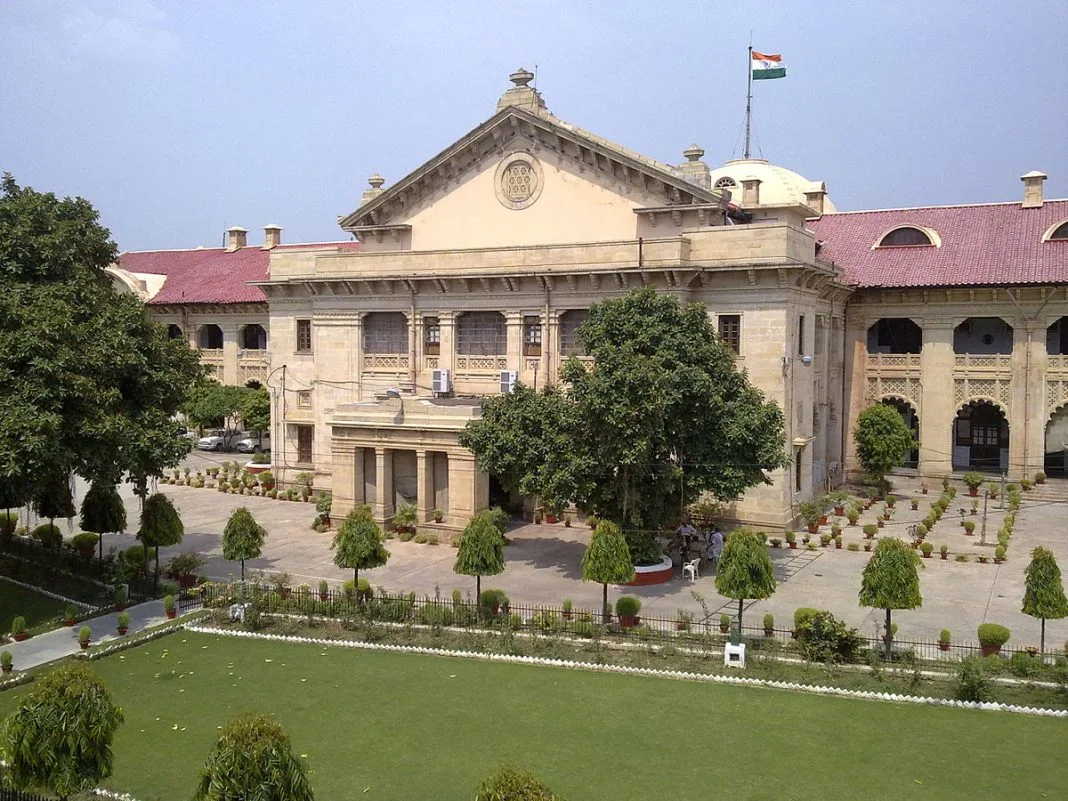The Allahabad High Court has dismissed an appeal filed seeking against the order dated 24.12.2020 passed by the Designated Authority under The Direct Tax Vivaad Se Vishwas, Act, 2020.
The Court has held that a litigant does not have a fundamental or inherent right to claim settlement of dispute outside court. The right being created by statute must be availed in accordance with it.
The Division Bench of Justice Saumitra Dayal Singh and Justice Shiv Shanker Prasad passed this order while hearing a petition filed by Umesh Garg.
Undisputedely, for the assessment year 2013-2014 the petitioner was imposed under Section 271 AAB of the Income Tax Act, 1961. Thus Rs 1,71,371/- was raised.
Initially the petitioner filed an appeal against the order dated 29.09.2015. That appeal was partly allowed vide order dated 16.02.2017 and the penalty amount was reduced.
However, the petitioner did not file any further appeal from the order of the appellate authority over a long period of time. That appeal was filed carrying a delay of 1261 days. Thus the second appeal was filed by the appellant on 30th August, 2020. By order dated 23.12.2020 the delay in filing the second appeal was condoned. The appeal is pending before the Tribunal.
Counsel for the petitioner submitted that grave injustice has been caused in not allowing the petitioner to take benefit of the Act. The petitioner is not looking to litigate the matter with the revenue authorities. It seeks an amicable settlement in terms of the Act. Insofar as it is the stated policy of the Union to prefer settlement over litigation, indulgence may be granted to allow the petitioner’s application/ declaration for settlement, filed on 24.12.2020 to be entertained on merits. The designated authority has completely erred in mechanically rejecting that application/ declaration for reason of second appeal not filed before the cut off date 01.04.1919 to 31.01.2020.
On the other hand, counsel for the revenue submitted that not only the petitioner did not file any appeal within limitation, he also did not file such appeal with delay within the cut off time. Had such a delay condonation application being filed, the revenue authorities would have remained enabled to consider the application/ declaration on merits.
“Having heard counsel for the parties and having perused the records, we find no good ground to offer any interference. In the first place, settlement of disputes outside courts/ judicial process is not a fundamental or inherent right of any litigant. That right was created by the statute i.e the Act. Being a statutory right, the same may have been availed strictly in accordance with the statutory conditions and further inasmuch as it was a stipulation that the application/ declaration may be maintainable only if there was pending a litigation between the parties before the cut off date, it remained from the petitioner to satisfy that condition. Not only did the petitioner not file the appeal before the Tribunal, within time it also remained from him to file any defective proceeding seeking condonation of delay in filing such appeal before the cut off date. Therefore, no right vested or accrued to the petitioner to seek a settlement in terms of the conditions prescribed by the Act. For that reason, we find no error in the order passed by the designated authority.
Insofar as the further submission of the counsel for the petitioner is concerned based on the objects and reasons of the Act, while objects and reasons may never defeat specific provisions of enactment, here we also note that the petitioner is not at loss inasmuch as his right of appeal before the Tribunal, against the order passed by the first appellate authority has been preserved upon condonation of delay of 1261 days in filing the second appeal”, the Court observed while dismissing the petition.


